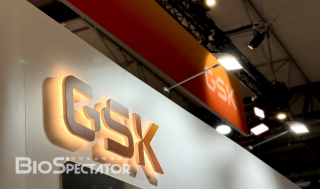탐방
RAPHAS, ‘Microneedle’ Expansion Strategy..“Development of Vaccine Patches etc”
by Naeun Bong
Phase I Clinical Trial of the Patch for Osteoporosis Approved..Targeting Phase I Clinical Trial for Alzheimer-Allergy..Strategy of Co-development

▲President Jeong Do-Hyeon
RAPHAS is a combination of two terms representing ‘healing(rapha)’ and ‘passage (path)’. The company develops ‘microneedle patches’ delivering drugs percutaneously, and optimized the unique technology of microneedle, the ‘DEN (Droplet Extension)’, to a stage of commercialization; it was founded in 2006 by President Jeong Do-Hyeon to develop patches mounted with therapeutic substance.
President Jeong stated, “… the market of therapeutic substance exploiting injection will be expanding in accordance with the growing market of biopharmaceuticals, however the growth will accompany problems associated with high distribution cost of biopharmaceuticals associated with the prevention of needle phobia, inter-patient cross-contamination via needle, and distribution of drugs in states of cold storage etc. …”, and forecasted, “… the interest in new technology of drug delivery will thereby be increasing accordingly…”.
RAPHAS developed the dissolving microneedle patch, and currently is expanding its business domain into those of general- and specialized medicine(for osteoporosis, Alzheimer’s disease, and allergy) and vaccines, beyond the business in cosmetic products and medical equipment.
◇ RAPHAS Secured the 3rd Generation Technology of ‘Dissolving Microneedle Patch’
‘Microneedle Patch’ exploits the mechanism of percutaneous delivery of drugs through attaching a patch embedding a microneedle to the skin. Application of the method is easier than applying conventional ones with less pain. The drug is made in a solidified form that allows the delivery of it conveniently. Besides, comparing to conventional therapeutic agents exploiting percutaneous delivery, it exhibits an advantage of delivery of macromolecule drugs(vaccines and biopharmaceuticals etc.).
RAPHAS currently focuses its efforts on the development of patches exploiting the 3rd generation microneedle that supplements the limitations of conventional microneedle exhibiting difficulties in the delivery of drugs because of an obturation of microneedle by epithelial cells. Dissolving microneedle patch comprises the dissolving polymer, the excipient approved as a conventional parenteral or percutaneous injection, and drug. It is safe in the case of bending of the needle in skin; the drug is delivered through an adsorption of dissolving polymer and drugs delivered by the microneedle penetrating into the skin.
In particular, RAPHAS developed the proprietary technology of droplet extension(DEN) of the simple process type for manufacturing that enables convenient mass production of dissolving microneedle patches highly efficient in the delivery of drugs.
Kim Jeong-dong, the CTO of RAPHAS, stated, “… DEN technology enables the mounting of droplets mixed with dissolving polymer and drugs upon patches and extension to desirable length”, “… manufacturing process of DEN is simple thereby the production up to million pieces a month would be enabled without the application of heating process that grants relative advantages in the production of biopharmaceuticals. Besides, the quantitative precision control up to nanoliter scale is also enabled.”
RAPHAS filed an application for patent registration of DEN technology, and secured pertinent patent rights to 2033, with the rights of system patent to 2033 and of improvement patent to 2035.
Additionally, RAPHAS developed the dissolving microneedle further into a form capable of delivering relatively larger amount of drugs in a short time. Different from the microneedle of one-layer structure consists of dissolving polymer and drugs in a needle, the microneedle of two-layer structure of API layer mounted on the layer of dissolving polymer(base layer), was developed. RAPHAS explained the two-layer structure of dissolving microneedle can accomplish 100% of efficiency of drug delivery.
◇ Enters Phase I Clinical Trial for Osteoporosis This Year..Phase I Clinical Trials for Alzheimer’s Disease(Boryung Pharmaceuticals) and Allergy(Stallergenes, France) are Planned This Year
RAPHAS will release the ‘dissolving microneedle patches’ mounted with three kinds of specialized medicines(for Osteoporosis, Alzheimer’s disease, Allergies due to house dust mite) this year, and enter them into domestic clinical trials.
Recently, the parathyroid hormone patch, the 'RAP18001', prepared for the treatment of osteoporosis, acquired an approval for the domestic Phase I Clinical Trial for microneedle product. The clinical trial will be conducted with 15 patients of post-menopausal females for which each patient will be prescribed with Teribone subcutaneous injection(56.5㎍) or 56.5㎍ of RAP18001 patch(to the group of application of applicator and to the group without application of applicator) once weekly.
RAPHAS currently develops the patch using the ‘donepezil’, mostly prescribed in the market for therapeutics of Alzheimer’s disease, with Boryung Pharmaceuticals. Under the established plan of the Domestic Phase I Clinical Trial for the patch of donepezil, the investigational new drug(IND) application of Phase I Clinical Trial for the identification of bioequivalence has been filed with the Ministry of Food and Drug Safety by the Boryung Pharmaceuticals.
Besides, RAPHAS concluded an agreement of co-development of the patch for the treatment of allergic diseases caused by house dust mite HDM) with Stallergenes, France, last year.
With the intention of the Phase I Clinical Trial to be held in the 3rd quarter this year, the clinical design thereof is currently in progress with the Ministry of Food and Drug Safety. Upon the enablement of access to immunotherapy for the treatment of allergy through microneedle patch, the field of development will be expanded to that of peanuts allergy patches.
◇Development of Vaccine Patch with Serum Institute of India..“Development of Mpg Vaccine Capable of Replacing BCG(Vaccine for Tuberculosis) is in Progress”
RAPHAS ultimately targets the market of vaccines with the application of DEN technology. The approach is based on the expected significant effect resulting from the delivery of vaccines into the epidermal layer of the skin wherein hundreds of millions of dendritic cells capable of expressing immunological activity exist.
RAPHAS established the partnership with the Serum Institute of India, the global enterprise of manufacturing vaccines, since 2017 for the co-development vaccine patches. Currently, RAPHAS and Serum Institute of India are on the initial stage of co-development of vaccine patches for HBV and IPV, and applied the vaccine patches for HBV and IPV to microneedle patches, and conducted pertinent animal test wherein the creation of antibodies were observed.
RAPHAS also develops the vaccine patches for new bacterial strains. The company introduced the mycobacterium paragordonae(Mpg) found from the Laboratory of Medical College of Seoul National University for the development of patches that can replace the Bacille Calmette-Guerin (BCG; vaccines for tuberculosis). Currently, the company promotes the co-development with PATH, the global research institution of vaccines.
◇ Diverse Fields of Application including Cosmetic Products and Medical Instrument etc..The Proprietary Brand, ‘ACROPASS’, Launched
Droplet Extension(DEN) technology of RAPHAS can be applicable to diverse fields including medical equipment or cosmetic products. RAPHAS demonstrates a significant growth in the business of cosmetic products by an application of microneedle technology. The company performs the ODM(Original Design Manufacturing) for leading global enterprises of cosmetic products such as L’Oreal and Johnson & Johnson(J&J), and demonstrates its technological competency of microneedle. RAPHAS also launched the ‘Acropass’, the ‘Derma-Cosmetic Brand’, with the release of cosmetic products such as patches for skin problems and anti-aging products, to deliver intensively imprinted image of its brand.
Besides, RAPHAS collaborates with Philosys Healthcare, the healthcare company developing glycosuria control system and blood glucose meters etc. for the development of patches applicable to medical instrument using microneedle technology that enables the measurement of blood glucose level. The company anticipates the microneedle technology can be applicable to diverse kinds of products capable of diagnosis of diseases such as cardiac arrhythmia etc. in the future.



















